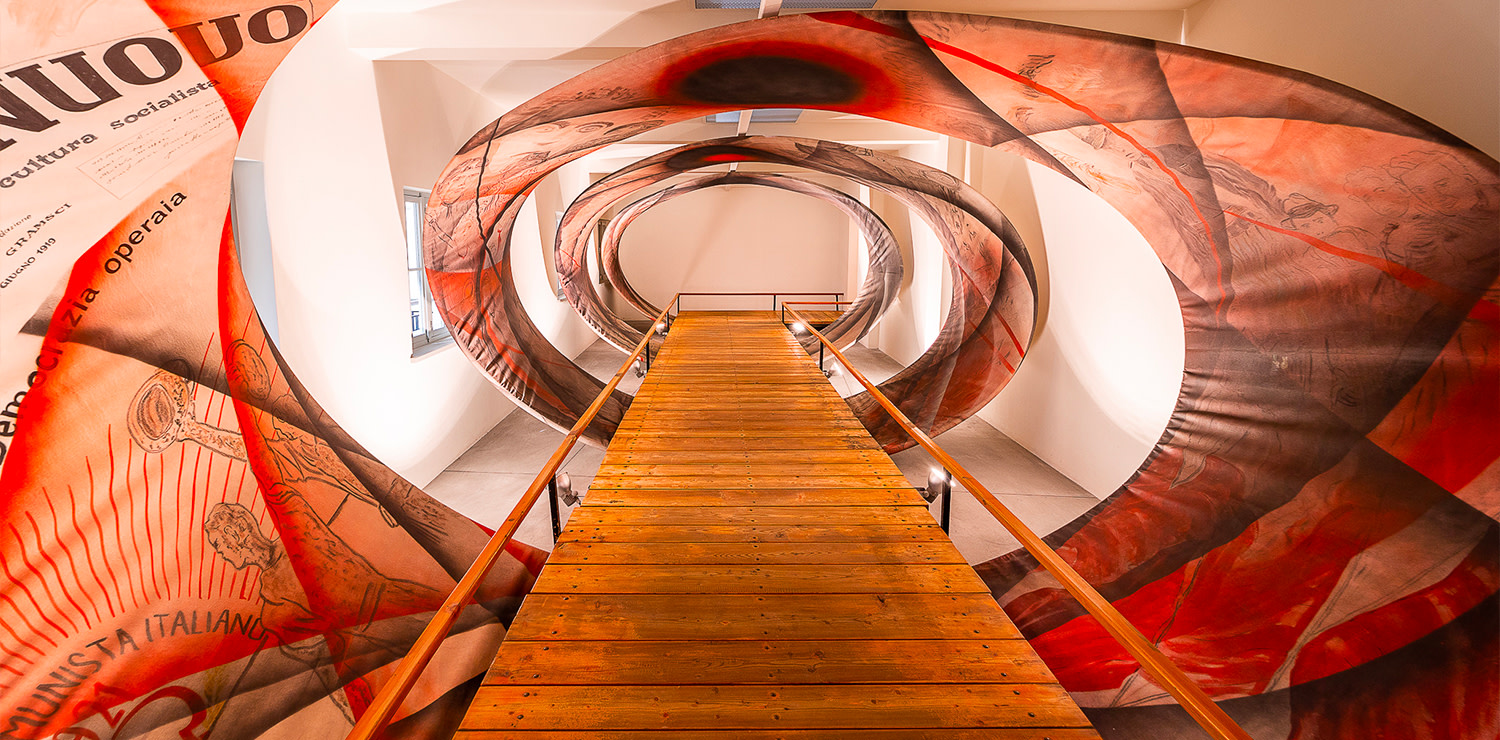Remembrance Day 2025 in Florence
All the most important initiatives on the occasion of January 27th that remembers the victims of the Holocaust
If learning about the past always remains an indispensable value for every nation and every society, this value becomes even more significant in the case of Holocaust Memorial Day, which commemorates the victims of the Holocaust. In particular, 27 January 1945 commemorates when the Soviet army in Poland discovered the Auschwitz concentration camp, bringing to light the shocking Nazi lager extermination programme.
The Italian Auschwitz Memorial can be visited in Florence, extraordinarily open on 27 January in the afternoon for two exceptional visits at 3 and 4.30 p.m.: after an introduction to the ground floor by MUS.E, the work on the first floor will be presented by experts from the Opificio delle Pietre Dure in Florence. In fact, the Memorial once set up inside Block 21 of the Auschwitz I camp is on display here. The second part of the visit will then illustrate the complex restoration work that has brought the Memorial back to its current layout.
On the occasion of Remembrance Day, several events have been organised at the Italian Auschwitz Memorial, but also throughout the rest of the city, let's see them together.
On Monday 27 January at 12.30 p.m. at Santa Maria Novella station, a memorial ceremony will be held at platform 16 in memory of all deportations. Wreaths of laurel will be laid at the monuments and plaques commemorating the Fallen deported to the extermination camps, at Villa Vogel, at the Trespiano cemetery, at the Synagogue, at the Leopoldine in Piazza Santa Maria Novella, at platform 16 at Santa Maria Novella Station, at the Fortezza da Basso, and at the Cascine shooting range.
On Monday 27 at 5.30 p.m. (free admission subject to availability) the doors of the Museo Novecento will open to welcome the Abbot of San Miniato Bernardo Gianni, the historian and singer-songwriter Letizia Fuochi, and the young students of the Liceo Scientifico Leonardo da Vinci. The day will be an invitation to reflect on the ‘limits of forgiveness’, a theme taken from Simon Wiesenthal's book The Sunflower - The Limits of Forgiveness, which revolves around the open, and never resolved, questions of forgiveness and shared memory in the face of immense tragedies such as the Shoah and the Holocaust. Abbot Bernardo Gianni will focus on these fundamental issues. Following this, Letizia Fuochi will introduce the contents of Wiesenthal's book, recount its origin and explain its structure. Lastly, a group of young students will read excerpts from The Sunflower - The Limits of Forgiveness inside the exhibition rooms, distributing themselves between the ground floor and the second floor, which now houses the works of the permanent collection. In this way, a conceptual and emotional journey will take shape, which the public will be able to experience as a journey back in memory to the limits of forgiveness.
On Monday 27 January at 21:15 at the Aurora Theatre in Scandicci, Paola Minaccioni is the protagonist of Elena la Matta. An all-female true story that turns into an enthralling and emotionally impactful performance.
A ‘homage exhibition’ to the artist who lived through the horror of the lager, while managing to recount it in a diary. It is organised by the Uffizi: the protagonist of the exhibition focus on the first floor of the Gallery will be the painter of Jewish origin Aldo Carpi. Three works belonging to the museum's collections make up the testimony. They are the self-portraits of 1925 and 1964 and After Dinner (ordinarily exhibited in the Gallery of Modern Art in Palazzo Pitti) of 1913.
Tuesday 28 January at 5.30 p.m. presentation of the book La resistenza ebraica in Europa. Storie e percorsi 1939-1945 by Daniele Susini; preface by Laura Fontana, afterword by Alberto Cavaglion (Donzelli, 2021). Presentation by Massimo Castoldi.
Thursday 29 January at 5.30 p.m., for Leggere per non dimenticare, presentation of the book edited by Milena Santerini L'antisemitismo e le sue metamorfosi. Distortion of the Shoah, online hatred and conspiracies (Giuntina, 2023). Speaker: Ugo Caffaz. Attendance is free while places last, booking is recommended via the dedicated online platform or by contacting the Library on 055 261 6512 and at bibliotecadelleoblate@comune.fi.it.
Tuesday 4 February at 6.30 p.m., in the Sala Storica Dino Campana, presentation of the book Patrilineare. Una storia di fantasmi by Enrico Fink; the author dialogues with Giorgio van Straten. Readings by Ottavia Piccolo, music by Massimo Ferri and Enrico Fink. Admission free subject to availability. For information call 055 2616512 or write to bibliotecadelleoblate@comune.fi.it









